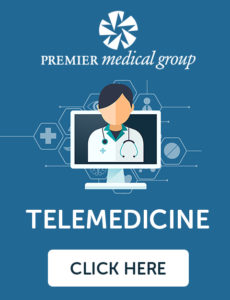Premier Medical Group’s Dermatology division offers many treatment options to help patients get rid of acne and prevent or reduce future outbreaks. We take the time to carefully assess the underlying causes of your condition and design a treatment plan that addresses these factors. Here are just some of the treatment options we may suggest.
- Topical Treatments: For many patients, topical treatments can be an effective option for getting their acne under control. Unfortunately, over-the-counter brands may not have active ingredient concentrations strong enough to clear the pores and reduce inflammation. In such cases prescription-strength creams may be a viable option.

- Prescription Medication: Patients struggling with severe acne, like cystic acne, may need a more aggressive form of treatment that involves oral medication.
- Chemical Peels: Some chemical peels, like the glycolic acid peel, can be very effective as part of an acne treatment routine. These peels reduce acne by exfoliating the skin and unclogging pores.
- Skin Care Routine: In some cases, the patient’s acne can be partly the result of a poorly-designed skin care routine. To help you treat acne, we can help you assess your current skin care routine and figure out how it can be improved.
Don’t wait to get professional help for your acne. Dr. Mays Al-Shaer is highly experienced in this field and has helped countless patients significantly reduce outbreaks or get rid of acne altogether.
Set up your acne consultation today! We offer convenient Telemedicine appointments so you can speak to Dr. Al-Shaer from the comfort of your own home using your computer, phone or tablet!

